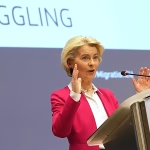The G20 finance leaders recently made history by releasing a joint declaration to cooperate in effectively taxing the world’s largest fortunes. The declaration emphasizes fair taxation of ultra-high-net-worth individuals and was included in both the joint communique and a separate declaration on international tax cooperation. Treasury Secretary Janet Yellen believes that these discussions should be handled by the OECD, while some major developing nations advocate for discussions at both the United Nations and OECD.
There are differing opinions on the right forum for global tax cooperation, with some believing the United Nations is the proper venue, including Nobel laureate Joseph Stiglitz. Oxfam International’s Tax Policy Lead Susana Ruiz urged G20 leaders to align with the progress being made at the UN for setting global standards on taxing the ultra-rich. Brazilian Finance Ministry official Guilherme Mello sees the UN Framework Convention as a victory for developing nations who seek better representation, although he recognized both the OECD and UN as legitimate forums.
While some progress has been made in discussions on how to effectively tax the super-rich, the actual implementation of a global “billionaire tax” remains uncertain. European officials have expressed skepticism, noting that even the European Union lacks taxation power as a bloc. Some countries, like France, support a global minimum wealth tax, while others, like Germany, resist. Overall, the road to a global tax on billionaires may prove to be challenging.
The debate over the right forum for global tax cooperation continues, with the OECD and the United Nations being considered as potential venues for discussions on taxing the ultra-rich. Treasury Secretary Janet Yellen believes the OECD is better equipped to handle these talks due to its consensus-based approach and technical expertise. However, some major developing nations argue for discussions at both the UN and OECD to ensure broader representation and participation in setting global tax standards.
While the G20 finance leaders have made an important step towards fair taxation of ultra-high-net-worth individuals, differences in opinions remain regarding the best approach to tackle this issue. Some advocate for the UN as the proper forum for global tax cooperation, emphasizing the need for a democratic process in setting global tax standards. Despite the challenges and disagreements, the ongoing discussions on taxing the super-rich indicate progress, and the shape of future tax policies will depend on further dialogues and negotiations held among various stakeholders.









